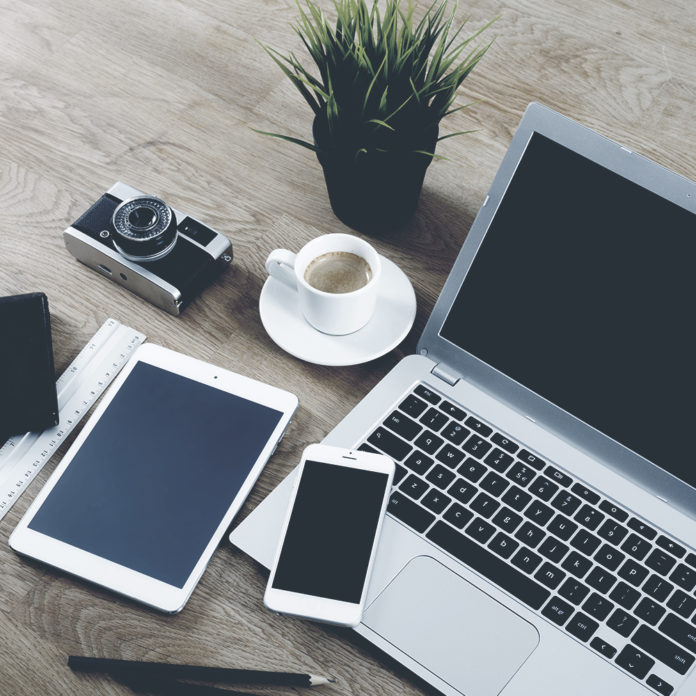
Why taking time off from technology is good
One of my co-workers told me he decided to detox this summer and his reasons inspired me to unplug during the day for small bits of time. What I’ve discovered is this:
• Things go on all of the time. If I am constantly on my phone, I miss them.
• The space between events is something that I’ve lost because, in any space, I jump on my phone. I lose the transition moments between things. At work, I have been missing what happens in the minutes after the director yells “Cut!” because I jump on my phone. No more.
• I don’t constantly need to get ahead. It’s not like I am the President of the United States. I can go for an hour without my phone. And I am trying to.
The emphasis towards increased access to technology in the past, say, 15 years has dramatically shifted the way we communicate and perceive the world. The subsequent backlash leading to movements to “unplug” and “detox” are a direct consequence of a world dependent on technology and, arguably, indirect means of communication.
As some of you may know, a fraction of a percent (approximately .003%) of the world’s population (Orthodox Jews) unplugs weekly for 25 hours, from about 20 minutes before sundown to about an hour after sundown, for the Sabbath (Shabbat).
When it comes to my history with technology, here are three things you should know.
- Technology in the Bialik House. I grew up in a very non-tech-savvy household. My parents were teachers, artists, bohemians. We had phones and a two-tape answering machine but that was the extent of technology. We didn’t have air conditioning, and we always called “a guy” to fix things. We didn’t have a computer, ever, while I lived at home.
- College life without computers. I entered college in 1995, a time when no one had personal computers. We checked email by standing in a short line (because not everyone needed a computer anyway) in the Coop at UCLA and logged in to an email account set up by the university, No one surfed the web really. No one looked at online pictures of people to decide who to meet that night just to have sex with. It just didn’t happen. When we had to enroll in classes at UCLA, you got an assigned phone call-in time and had to call from pay phones to select your classes. Crazy, right?
- I started dating before people had cell phones (or computers). I didn’t date until college; when I dated my ex (we met in calculus class), we set times to meet and met at those times. Built into our plans was the “if you don’t show up by…” plan and we sometimes would leave notes at places we met if plans changed and we needed to communicate about it. It worked. We figured it all out.
As for now? Here is how I relate to technology today.
- I still don’t really get technology. I may have a PhD in neuroscience, but I am not a tech nerd. I am my parents’ daughter. I keep a regular paper calendar. I do math by hand, and I keep an accounting ledger by hand. I do know technology is amazing, but I can’t say I “love” it.
- Dependence on technology scares me. Young people now live in an entirely digital and technologically-driven world and, like any old fuddy duddy, it scares me. People rarely talk to each other anymore, and I fear my kids may not be taught to speak to their friends and potential dates the way I learned to. Everything is emotional shorthand. They think in snippets, the teenagers I know. It scares me.
- Dating in the digital age terrifies me. You say things in texts you would never say. Kids post naked pictures of themselves as a flirtation and it goes viral and can ruin lives. This terrifies me. I wonder what my kids will be exposed to, and it’s a huge factor in their dad’s and my decision to not have them have cell phones or any screen time without us. At all. No exceptions.
So, with such a reliance on technology at every moment of the modern day, what does unplugging do?
Unplugging for any designated period of time grounds you. You literally will feel like you’ve had a limb cut off, because we live attached to our phones, now. Unplugging humbles you and forces you to focus on real things that happen and need your response in real time. It will invariably make you feel bad when you realize all of the time you “waste” scrolling through Instagram (who, me?).
Sometimes, when you’re detoxing, you forget. You slip. Even for those of you who have decided not to text in the car and don’t do it for a while but then start again know that we need constant reminders to constantly not do it. Experiencing something like a Shabbat, or other regularly planned technology detox times, reminds us to return again and again with frequency to the reasons we decided to unplug in the first place – our in-person real lives, our friends and family, our physical environment.
Whether you are a Shabbat observer or not, secular or religious, atheist or believer, the notion of unplugging, detoxing and resetting is needed for us all. We have never lived in a time like this and its impact is not something to be brushed off. We interact differently now. We think differently, and we feel differently. It’s a great idea for us all to get back to basics every once in a while. Everything will be waiting for you when you come back, I promise. Even me.
Credit: Grok Nation
